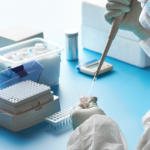 As the coronavirus has spread throughout the world, one of the enduring challenges has been understanding just who has, and has not, had the virus. Testing sufficient numbers to secure this insight has been something few countries have mastered, which has left their policies somewhat in the realm of guesswork.
As the coronavirus has spread throughout the world, one of the enduring challenges has been understanding just who has, and has not, had the virus. Testing sufficient numbers to secure this insight has been something few countries have mastered, which has left their policies somewhat in the realm of guesswork.
Researchers from the University of Florida are working on a home testing kit that they liken to a home pregnancy test. The test will give a quick, visual indicator to alert the user to the presence of the coronavirus.
The test, which has not yet been confirmed for commercial use, utilizes a strip that is similar to that used in pregnancy tests to provide people with a visual indicator as to the presence of the virus in their body.
“The idea is to have a paper-based system where people can just look at it and say, yes, you have it, or not,” the researchers explain.
The test is based upon CRISPR-based approaches that had previously been deployed to test for diseases such as HIV, hepatitis C and prostate cancer.
“As soon as the novel coronavirus emerged, I saw an application of this technology and immediately jumped right into it,” the researcher explains. “I was super excited not only that the test worked, but also that it showed significantly higher sensitivity compared to other CRISPR-based detection technologies.”
A long road
The test is still at a very early stage, and hasn’t been tested on humans yet, but the researchers are confident that it will eventually be able to provide test results in under 30 minutes, thus allowing people to take it at home and remove the need for a visit to a testing facility.
The test is, however, purely for signs of active infection, and doesn’t provide any insights into past infections, so will have limited use in helping us understand the spread of the disease, but instead be targeted at helping people to self-isolate when they have the symptoms.
The researchers hope that because their approach is not completely new that it will go through trials relatively quickly, with the work also potentially leading to offshoots, such as the development of a vaccine.